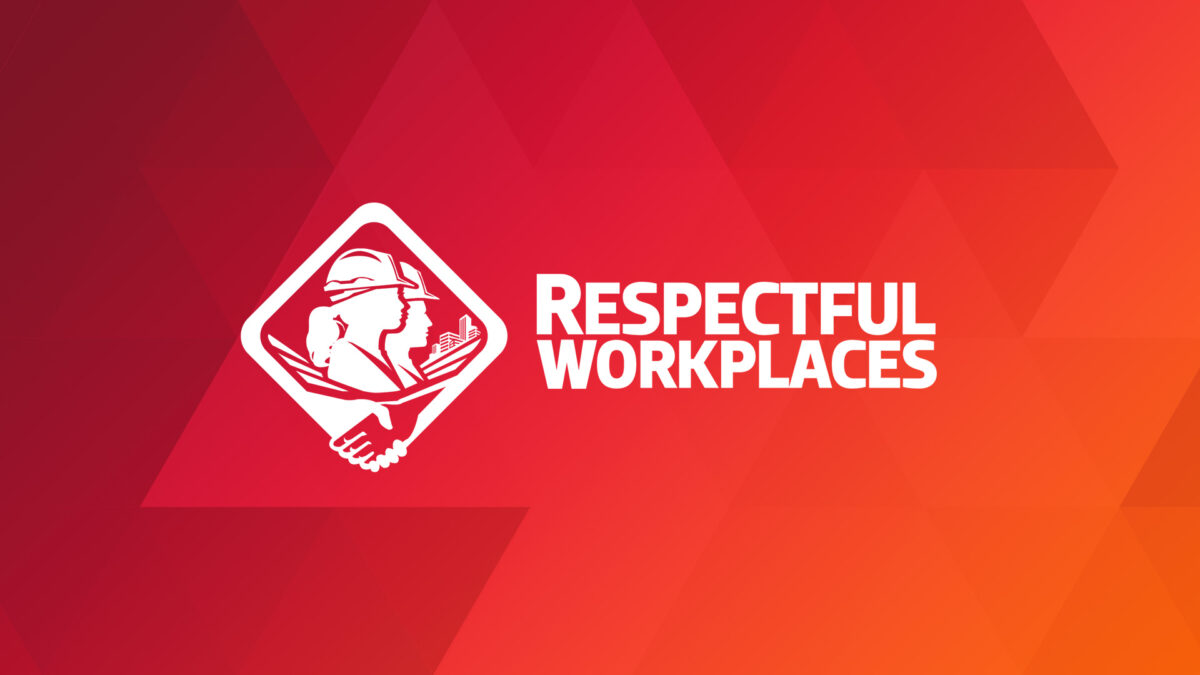Does your organization understand and address the sources of emotional tax?

Leaders and managers are key influencers in creating and supporting respectful and inclusive workplaces. Catalyst reports that 49% of workers’ experiences of an inclusive workplace are explained by inclusive leadership. Furthermore, when workers experience workplace inclusion, they report higher levels of team problem solving, engagement, retention, and innovation.
Despite the research showing the benefits of an inclusive workplace for workers and organizations, Catalyst found that members of marginalized groups continue to experience bias, exclusion, or discrimination, resulting in high levels of emotional tax.
Emotional tax is the combination of feeling different from peers at work because of gender, race, and/or ethnicity and the associated effects on health, well-being, and the ability to thrive at work. Indigenous people and People of Colour report devoting time and energy consciously to being on guard for the potential of large and small acts of bias, exclusion, or discrimination.
Being on guard to bias includes feeling the need to prepare for possible insults or avoid certain situations where they anticipate bias may occur, both inside and outside the workplace. While most experiences of exclusion are detrimental, a lifetime of being marginalized can have uniquely potent effects, including those on health and well-being.
In a study of Indigenous people working in Canada, Catalyst found that 52% of survey respondents reported that they are regularly on guard to experiences of bias. Indigenous women (67%) reported being on guard more frequently than Indigenous men (38%), reflecting the disproportionate discrimination and violence they experience compared to other groups.
Catalyst also found in a study of the day-to-day experiences of emotional tax among People of Colour (Asian, Black, Latinx, and multiracial professionals) in the United States that 58% report being highly on guard because of their gender, race, and/or ethnicity. Black men (64%) and Latinos (60%) most frequently report being on guard because of their gender, race, and/or ethnicity. However, more women (40%) than men (26%) report being on guard specifically because of their gender.
Typical acts of bias, exclusion, or discrimination that cause workers to be on guard include:
- Colleagues using racially insensitive language around them
- Being mistaken for someone else of the same racial background
- Being told that they are more articulate than others of their race/ethnicity
- Others regularly taking credit for their ideas in meetings
- Being excluded from meetings relevant to their job
- Their manager meeting one-on-one with others on their team but not them
Despite feeling high levels of emotional tax, or perhaps because of it, women and men of colour who experience emotional tax also report high aspirations to succeed and thrive professionally, personally, and in their communities. The ability to consciously prepare for potential bias may enable some people to persevere and foster resolve in the face of adversity.
However, highly motivated workers who report higher levels of being on guard pay a high price. Respondents who experience higher levels of being on guard are more likely (38%) to frequently consider leaving their jobs than those with lower levels of being on guard (11%). Those who report higher levels of being on guard are also more likely to report sleep problems (58%) than those with lower levels of being on guard (12%).
Without active and ongoing leadership to address the sources of emotional tax, organizations also pay a price in terms of lower levels of team problem solving, engagement, retention, innovation, and morale.
Five strategies to eliminate the sources of emotional tax
Leaders can use the following five strategies to eliminate the sources of emotional tax in their organizations:
1. Learn and adopt bias self-checking exercises.
Because of their influence throughout an organization, it is essential that senior leaders recognize and take action to eliminate their own unconscious bias. This is a critical first step in overcoming workplace bias, low levels of workplace morale, poor employee engagement and retention; and unleashing team innovation.
Self-checking exercises include slowing down informal decision-making processes and ensuring that their peer group includes Indigenous people and People of Colour. (See blog #49 for an in-depth discussion.)
2. Pay attention to out-group/in-group dynamics.
In meetings and informal discussions, be aware of who is being acknowledged or who is being dismissed. In talent development processes, ensure that high potential Indigenous people and People of Colour are identified and groomed for advancement.
3. Shore up workers’ skills in inclusive leadership behaviours. Inclusion is everyone’s business.
Even workers who do not lead a team can embrace inclusive leadership behaviours that reduce the need for Indigenous people and People of Colour to feel on guard.
4. Build an environment of trust. Individuals must feel safe for telling the truth.
Leaders can role model trust by expressing their vulnerabilities and learning from their mistakes. They also provide the support for everyone to do the same. People need to know that they can speak up with ideas, questions, concerns, and mistakes.
5. Foster a team coaching climate.
Leaders can foster inclusive teams by making team coaching a goal tied to performance reviews, acknowledging that mistakes are inevitable, and encouraging team members to back one another in their efforts to deliver results.
Workers and organizations benefit when individual and organizational bias, exclusion, and discrimination are addressed. First, organizations thrive when they provide healthy and enjoyable places to work for everyone. Second, organizations that address bias, exclusion, and discrimination will realize the levels of team problem solving, engagement, retention, and innovation necessary for competitive advantage.
Leaders and managers who recognize the importance of reducing the sources of emotional tax in their organizations could consider participating in the online course Introduction to Understanding Systemic Racism: A Guide for Leaders and Managers. It provides the tools needed to eliminate the sources of emotional tax.
For more info:
- Brassel, S., Van Bommel, T., & Robotham, K. (2022). Three inclusive team norms that drive success. Catalyst. See www.catalyst.org/reports/inclusive-team-norms-success.
- CoQual. “Being Black in Corporate America: An Intersectional Exploration.” 2019. See https://coqual.org/wp-content/uploads/2020/09/CoqualBeingBlackinCorporateAmerica090720-1.pdf.
- Donovan, Mason and Mark Kaplan. “The Inclusion Dividend, 2nd Ed.” DG Press, New Hampshire, U.S., 2019.
- Thorpe-Moscon, J., & Ohm, J. (2021). Building Inclusion for Indigenous Peoples in Canadian Workplaces. Catalyst. See: www.catalyst.org/research/inclusion-indigenous-peoples-canada-workplace.
- Dnika J. Travis and Jennifer Thorpe-Moscon, Day-To-Day Experiences of Emotional Tax Among Women and Men of Color in the Workplace (Catalyst, 2018). See www.catalyst.org/research/day-to-day-experiences-of-emotional-tax-among-women-and-men-of-color-in-the-workplace.
- Sinek, Simon. “The Infinite Game.” Penguin Random House, U.S., 2019.
Read from the beginning. Click here to start at Part 1.
What can an effective Respectful and Inclusive Workplace Program deliver?
- Become an employer of choice – attract, retain, and advance top talent from all sources of labour
- Unlock collaboration and innovation – create high-performing teams through diversity of thought and experience
- Build your brand – your organization will gain a competitive edge as a leader and innovator
Get started today!
The BuildForce Canada Online Respectful and Inclusive Workplace Toolkit includes:
- the Respectful Workplace Online Self-Assessment Tool to assist organization leadership in assessing their current situation and identifying where they may need to make changes
- the Respectful Workplace Policy Framework and Implementation Guide to assist organizations in creating and implementing a policy that supports a respectful and inclusive workplace
- the Respectful Workplace Online Training Course to train workers on how to create and support a respectful and inclusive workplace
- the online course Introduction to Understanding Systemic Racism: A Guide for Leaders and Managers
All the resources you need to create and support a respectful and inclusive workplace!

Respectful and Inclusive Workplaces
